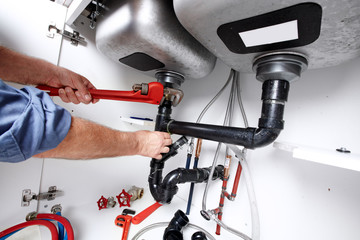Responsibilities of a Residential Plumber
A Residential Plumber has several responsibilities. In this article, we’ll discuss these responsibilities, the differences between a Residential Plumber and a Commercial Plumber, and the job outlook for this profession. We’ll also discuss how to find a good residential plumber. And we’ll touch on the salary range for this profession and the training and education required for this role.

A residential plumber’s duties include maintaining plumbing systems and repairing clogged pipes and drainage lines. They maintain water lines and pipes and operate pressure gauges to find leaks. Plumbing Company can also install new fixtures and fire sprinklers. They use special equipment to monitor plumbing systems and repair malfunctions.
A residential plumber’s responsibilities include various plumbing repairs and maintenance. They typically deal with water pipes and bathroom systems. They must also be familiar with new energy-efficiency codes. Residential plumbers are also responsible for water conservation. Increasingly, people are interested in green plumbing solutions that they can implement in their homes.
Some plumbers also specialize in a particular area of plumbing, like water heaters or plumbing fixtures. They must also be detail-oriented and able to understand the plumbing system to diagnose and correct problems. They can spot problems early and prevent larger problems from occurring. For example, plumbers can look for discolorations in pipes and prevent larger repair projects in the future.
A residential plumber typically works 40 hours a week. This can include overtime during peak business periods. They must be physically fit and have good interpersonal skills. They must work in cramped spaces and be able to bend and twist to perform their duties.
The main difference between a commercial and a residential plumber is that the former specializes in larger, more complex systems. Commercial plumbing professionals are better equipped with advanced tools and technology to finish jobs faster. While the two types of plumbing have similar problems, the environments are very different. A residential plumber typically works in a homeowner’s home, while a commercial plumber works in a commercial establishment.
Commercial plumbing projects are much larger than residential projects and may require more than one plumber. For instance, a single plumber might be able to handle several small plumbing issues, while a large commercial project may require a team of plumbers. In some cases, an entire plumbing fleet is needed. This makes it important to hire a commercial plumber with the proper training for the job.
Commercial plumbing requires more knowledge and expertise and requires more specialized equipment. While a residential plumber can easily clear a clogged drain, a commercial plumber must be more familiar with codes and be prepared for situations that may not come up in a residential environment. They may even have to contact a higher-up board to receive approval.
A commercial plumber works in a business environment and usually deals with large amounts of waste. This requires more advanced training than a residential plumber, but many journeymen plumbers can handle most commercial plumbing jobs.
The shortage of plumbers is a significant challenge for contractors. According to the National Homebuilders Association’s Spring 2021 Construction Market Report, a shortage of 55% of plumbers is expected by 2030. A lack of skilled plumbers can complicate contractor staffing, making it difficult for them to fulfill the growing market demands. Nevertheless, despite the shortage, employment opportunities are expected to increase over the next several years.
The Department of Labor’s Bureau of Labor Statistics tracks job growth for all occupations. The plumbing field is expected to grow by more than two-and-a-half percent from 2012 to 2022. This growth rate is based on an estimated 75,200 new jobs and the retirement of approximately six-thousand current workers.
The salary of a residential plumber depends on their experience, training, and specialization. More experience means higher earnings. Plumbing contractors with design and installation experience earn more than those who haven’t worked in the field for many years. Education also affects the compensation package. Although post-secondary education is not mandatory, it can improve salary prospects. Some plumbers choose to take vocational training to enhance their technical skills.
Residential plumbers work in residential buildings to design and install plumbing systems. Their duties may include installing water pipes and valves in walls, plumbing fixtures, and maintaining drainage systems. They may also perform basic residential plumbing tasks, including troubleshooting plumbing issues.
